We tested Paperpile and Endnote to answer the question of many – Which one of these tools is better? Our focus was on how these reference-finding tools support academic research with their distinct features and functionalities. Paperpile, with its easy subscription and strong mobile usability, targets casual users who prefer simplicity and mobility. In contrast, Endnote should be a better fit for more advanced users by providing extensive search capabilities and comprehensive resource access, although at a higher cost.
| TOP services | Updated March 2024 |
|---|---|
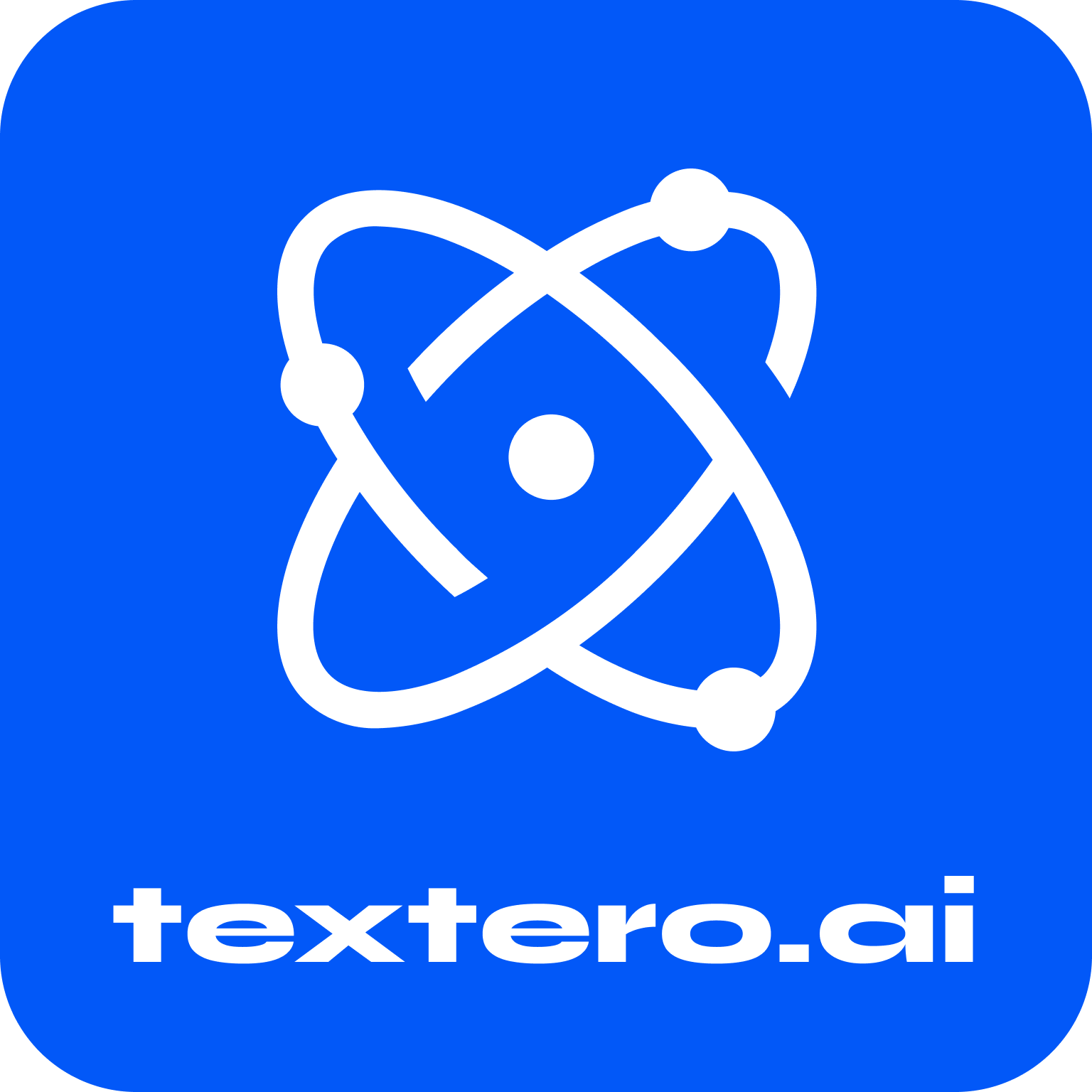
Textero
⭐⭐⭐⭐⭐ |
Get free access |
|
AHELP Reference Finder
⭐⭐⭐⭐⭐ |
Get free access |

Consensus
|
Read review |

Semantic Scholar
|
Read review |

Mendeley
|
Read review |
| PAPERPILE | ENDNOTE | |
| Best fit for | Casual users and those needing quick access on mobile devices | Advanced users who need comprehensive source materials |
| A*Help Score | ⭐⭐⭐ 62/100 | ⭐⭐⭐ 67/100 |
| Search Quality | ⭐⭐⭐ Limited source variety and poor filtering options | ⭐⭐⭐⭐ Strong source variety with effective full-text retrieval |
| Overall Experience | ⭐⭐⭐⭐ Mobile-friendly tool even though the desktop interface seems a little outdated | ⭐⭐⭐⭐ Requires initial setup but provides robust tools |
| Value for Money | ⭐⭐⭐⭐⭐ More affordable with essential features | ⭐⭐⭐⭐⭐ Higher cost but it’s justified by more sophisticated features |
Searching Quality: Paperpile VS Endnote
Our review indicates that Endnote performs much better than Paperpile in terms of search quality, with a score of 39 out of 50 compared to Paperpile’s 26. In addition to offering a wide variety of sources—such as books, journals, and conference materials—Endnote can also get entire texts from the internet when they are accessible. This feature greatly boosts the effectiveness of research. Paperpile, on the other hand, struggles to access and filter a wide variety of sources, even if it works well for simple searches. Additionally, users are unable to conveniently narrow searches or access books and conference proceedings—both of which are essential for thorough literature reviews. In our opinion, this constraint affects the platform’s usefulness for more in-depth academic study.
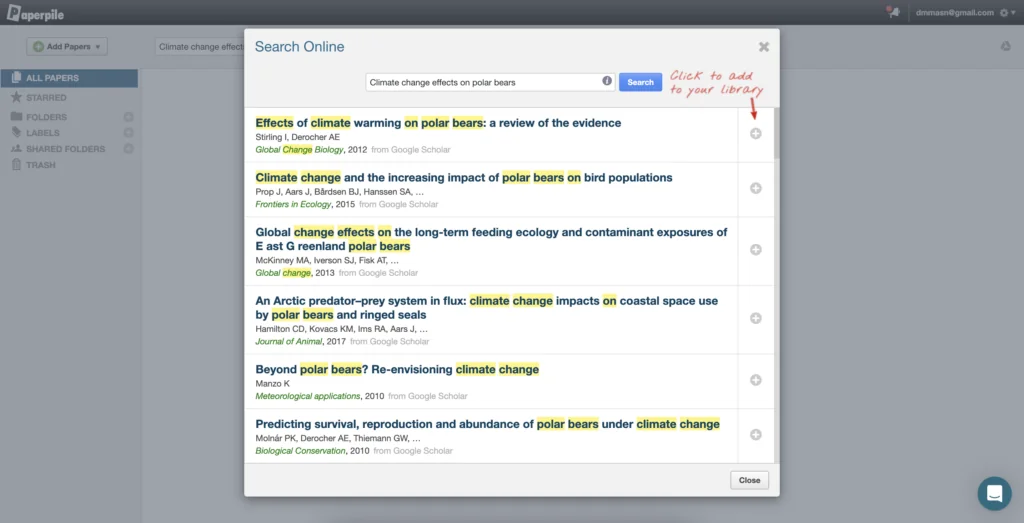
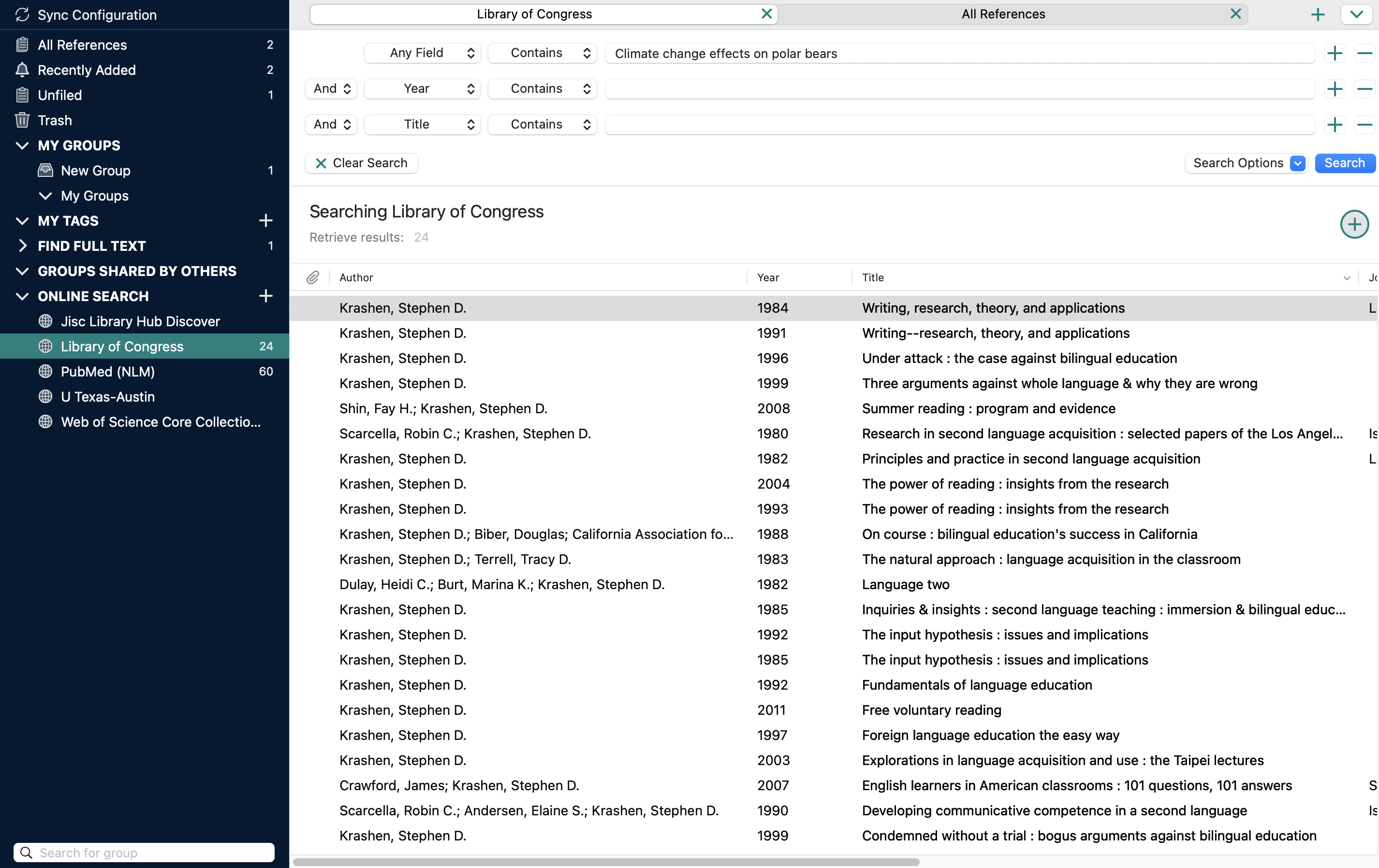
| Sources searched | PAPERPILE | ENDNOTE |
| Climate change effects on Polar bears | ||
| – shows relevant results | ✅ | ✅ |
| – features highly-cited sources | ❌ | n/a |
| Newest data on Mars rover findings | ||
| – shows relevant results | ❌ | ✅ |
| – features highly-cited sources | ❌ | n/a |
Comparing Value for Money: Paperpile VS Endnote
We found that Paperpile offers significant value for people on a budget, charging only $2.99 per month for its academic plan. It’s definitely one of the most competitive monthly prices. This plan includes all essential features needed for basic reference management, which makes Paperpile an attractive option for individuals or small teams not requiring extensive database access.
Conversely, Endnote’s pricing model is quite steep. However, the cost is justified for users who need to manage detailed and large research projects or are involved in research work in different disciplines. The one-time purchase options may look initially expensive, but it’s important to understand that it eliminates ongoing costs, providing long-term value for serious researchers. This makes us believe that Endnote is especially appealing to individuals who frequently engage in complex research and publication activities.
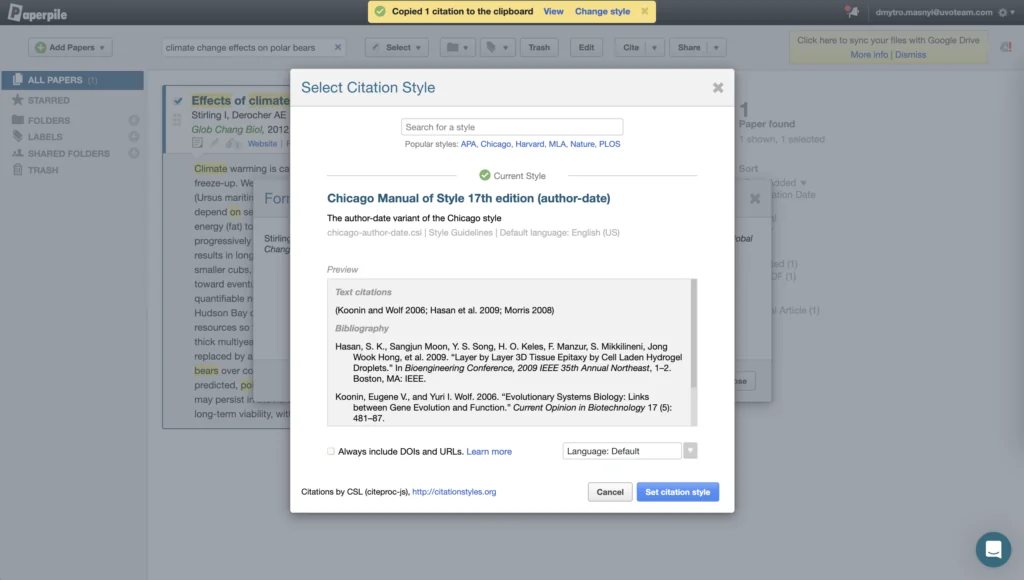
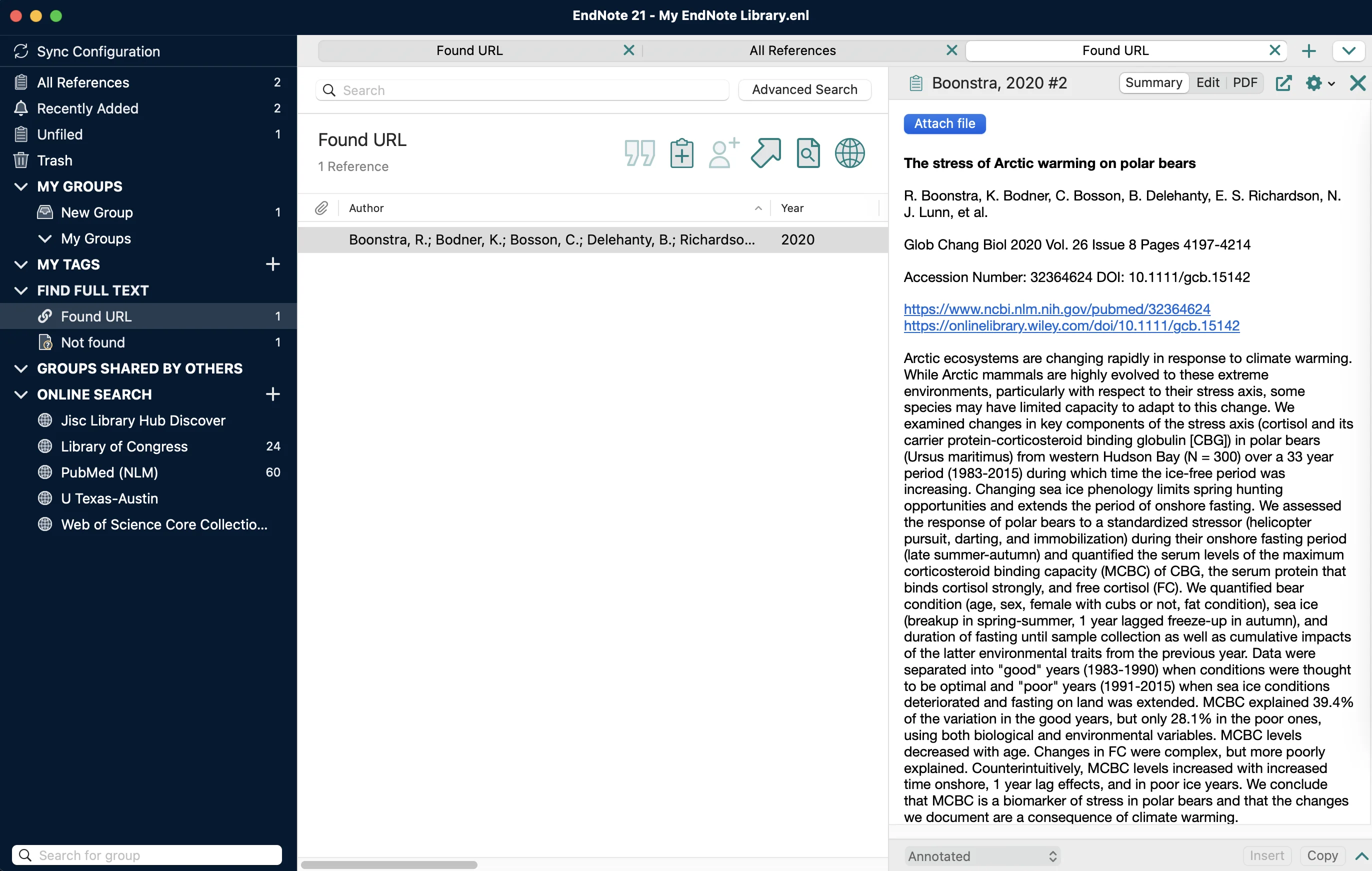
Comparing Overall Experience: Paperpile VS Endnote
Paperpile resembles a roller coaster ride in its functionality. While the service shows promise, every time we find something positive, there’s a drawback that dampens our enthusiasm—a series of ups and downs, if you will. It’s clearly designed for users who are well-integrated into the Google ecosystem, as it requires a Google account for registration and demands the installation of a Chrome extension for use. Obviously, this poses limitations for those who prefer other browsers or email services. The interface, despite being fast in terms of performance, looks somewhat outdated and often leads to a confusing user experience. Small and non-intuitive buttons and layout elements complicate basic tasks such as saving, citing, and sharing references. While saving references is possible within a personal library and sharing can be done via links or email, the overall process feels unnecessarily complex. The platform’s speed and general operational efficiency are undermined by its ambiguous and sometimes misleading interface, which can slow down the research process.
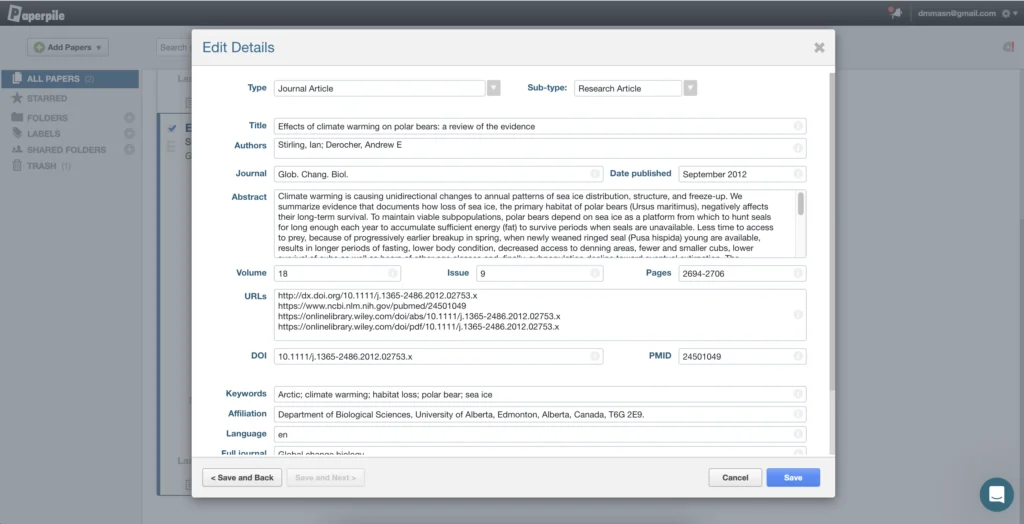
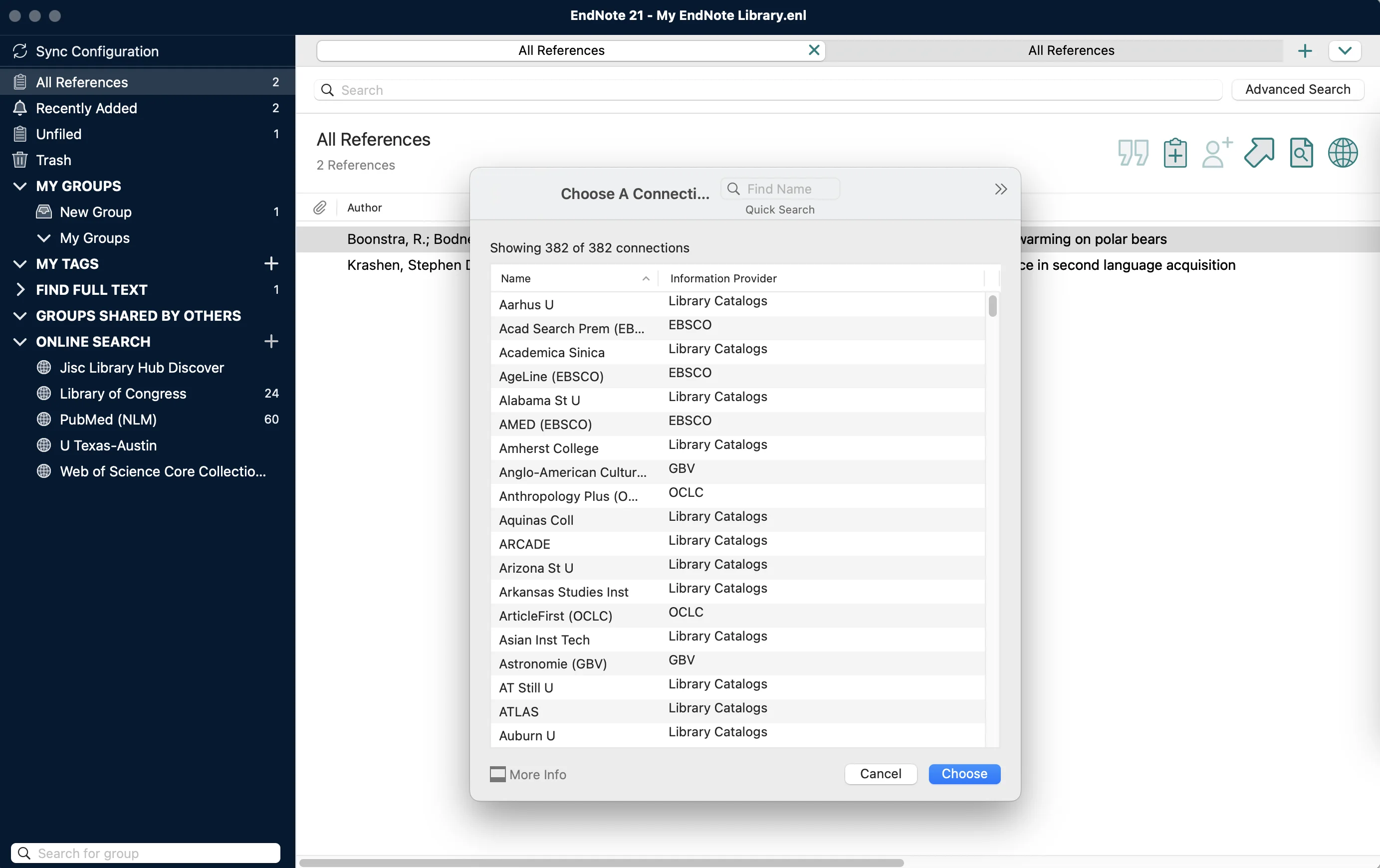
Endnote is the choice for users seeking all-inclusive reference management tools and are accustomed to professional-grade software. The initial setup involves downloading and installing a desktop application and completing a registration that includes entering billing information, even just to access the trial period. Once installed, however, the interface is straightforward and functional, designedfor people who need efficient reference management without unnecessary frills. Endnote supports saving references in personal libraries or customized smart groups, which enhances its organizational capabilities. The tool is particularly strong in its integration with external reference management tools and databases, offering wide functionalities for managing lengthy and complicated research projects. The platform’s search functionality is powerful, but it requires users to have specific information about the publications they are seeking. This can make the search process tedious and confusing for those less familiar with their research details. Despite these complexities, once users familiarize themselves with Endnote, it becomes an invaluable tool for detailed scholarly work.
In comparing the two, Endnote’s initial complexities are offset by its powerful functionalities suited for in-depth research, while Paperpile’s approachability is hampered by an interface that could benefit from modernization and more intuitive design elements. Each platform offers distinct advantages depending on the user’s specific needs and level of expertise in handling reference management tools.
The Verdict
Our comparison comes to the conclusion that the user’s particular demands and financial limitations should be considered when choosing between Paperpile and Endnote. Paperpile is the best option for anybody looking for a simple and affordable tool. It offers basic features that are ideal for short, regular academic assignments. Endnote, on the other hand, stands out despite its greater cost to more experienced users who need depth and complete skills in their research pursuits, providing a strong foundation for prolonged scholarly study and writing.
| Why academichelp.net is a credible source of information: Stay curious with us. Academichelp.net has been a reliable educational resource since 2011, providing students with the latest news, assignment samples, and other valuable materials. Even with the extensive information we process, our quality remains consistent. Each team member has experience in education, allowing us to evaluate new sector offerings critically. Our reviews are up-to-date and relevant, with impartiality ensured by the A*Help score methodology from mystery shopping. We aren’t affiliated with any listed service providers. Our focus remains on providing our audience with reliable and unbiased data. |
Follow us on Reddit for more insights and updates.

Comments (0)
Welcome to A*Help comments!
We’re all about debate and discussion at A*Help.
We value the diverse opinions of users, so you may find points of view that you don’t agree with. And that’s cool. However, there are certain things we’re not OK with: attempts to manipulate our data in any way, for example, or the posting of discriminative, offensive, hateful, or disparaging material.